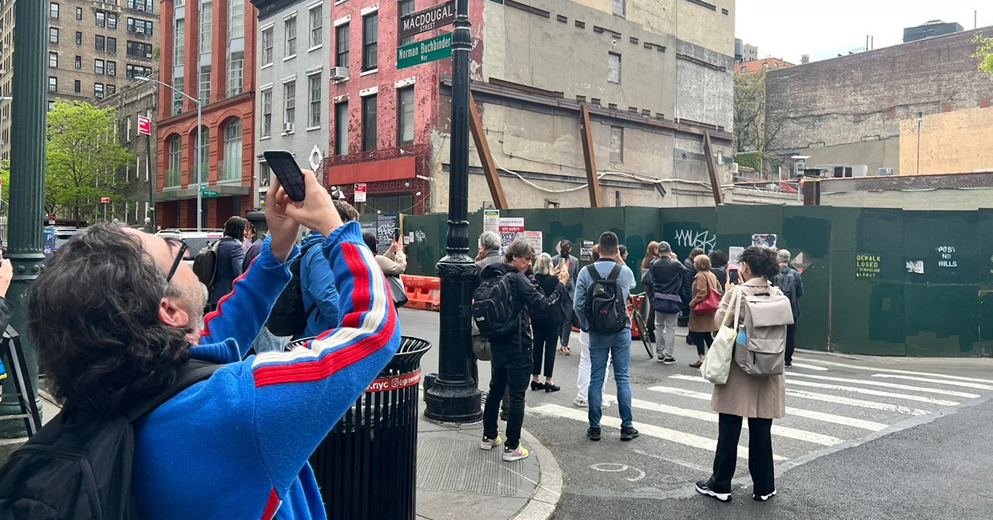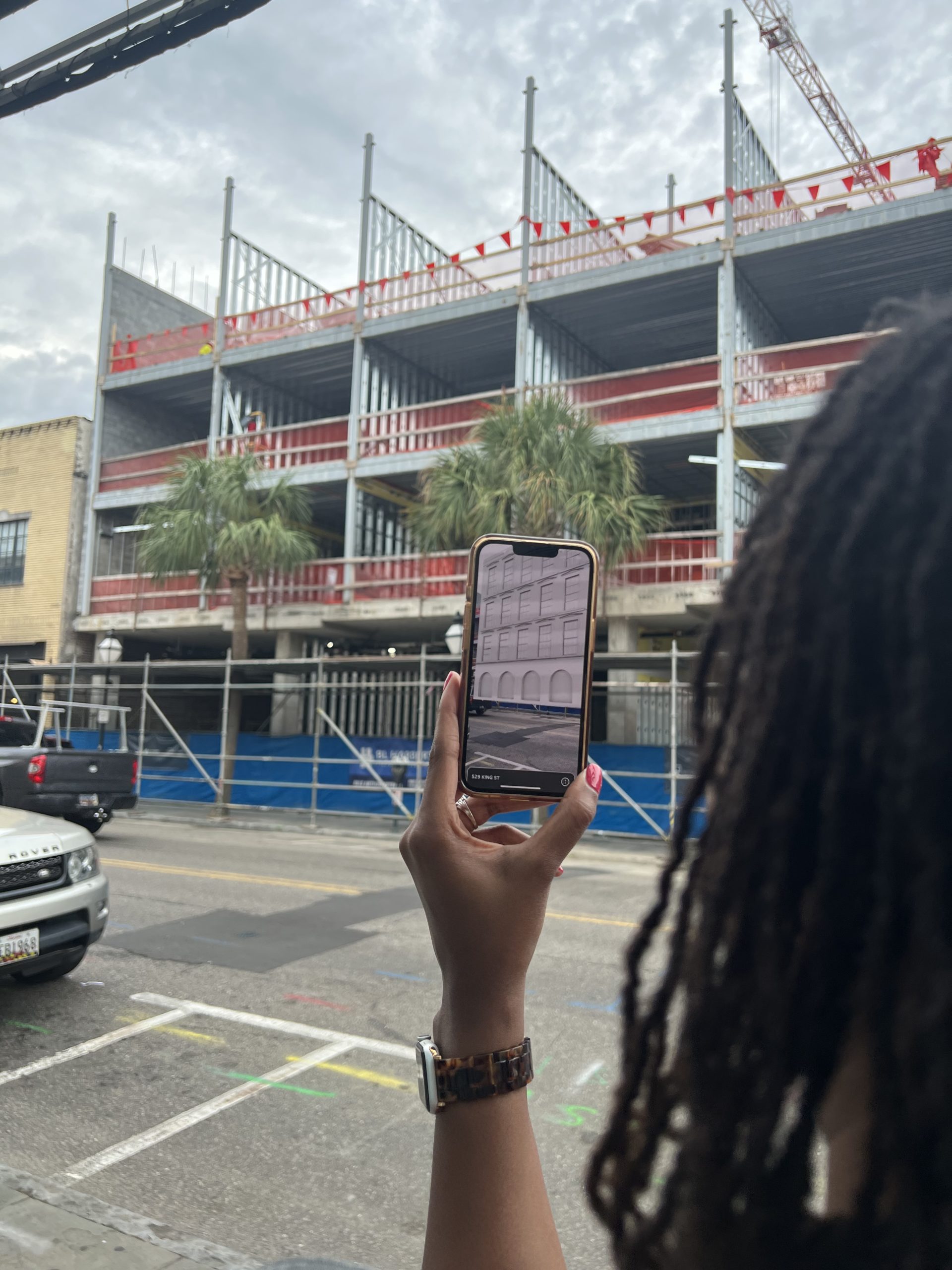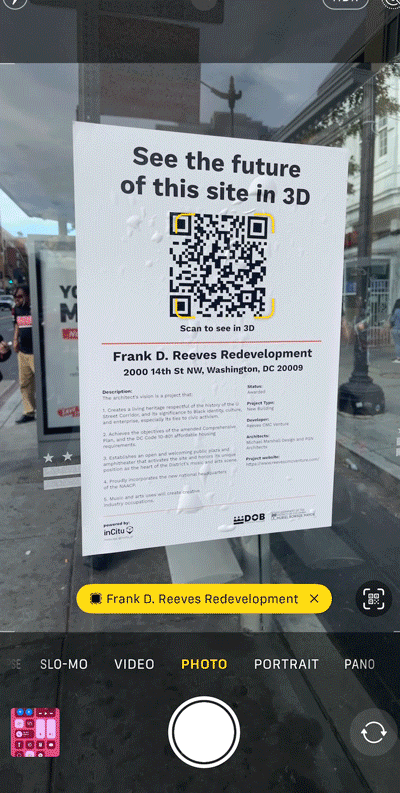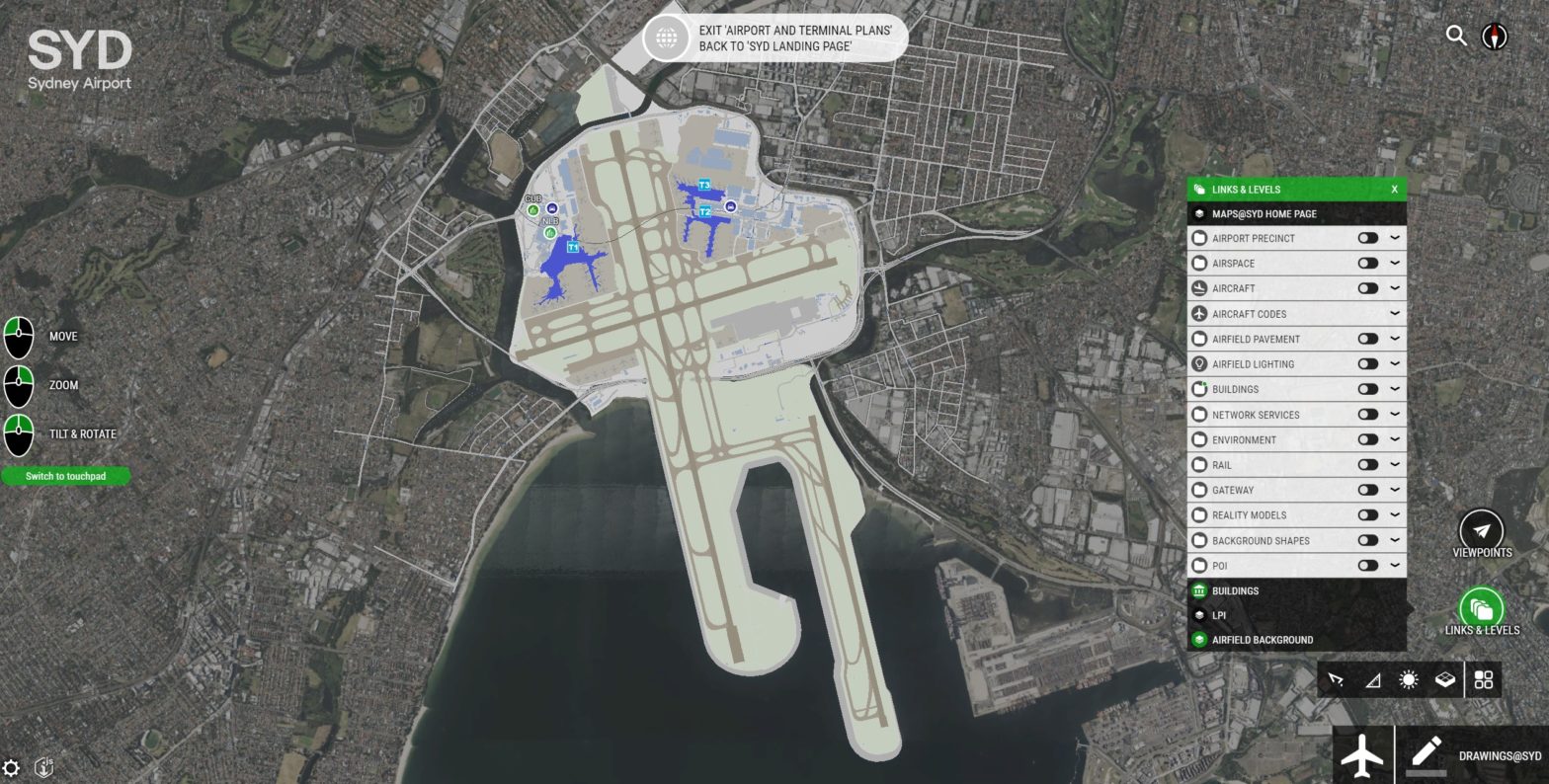
Photo: InCitu
How US cities are unlocking planning conversations with open data and augmented reality
08 December 2023
As cities become more connected and data-rich than ever before, the need for robust community engagement rooted in trust has only grown. How communities respond to 21st-century challenges like climate change and the housing crisis is a function of how well they negotiate urban change. What is the cost of not being on the same page? Time and again we see ambitious and transformative projects delayed, scrapped, or not delivering on their promises because they weren’t communicated early enough, critical voices were left out, or the process was allowed to devolve into a fight instead of a conversation.
 That’s where inCitu comes in. We’re a New York-based technology company delivering on a mission to bring future cities to life via augmented reality (AR) to empower residents, developers and city governments to collaborate on the process of urban change and unlock better conversations about the future. inCitu believes that you shouldn’t have to be an architect or planner to understand and engage with the future of your built environment.
That’s where inCitu comes in. We’re a New York-based technology company delivering on a mission to bring future cities to life via augmented reality (AR) to empower residents, developers and city governments to collaborate on the process of urban change and unlock better conversations about the future. inCitu believes that you shouldn’t have to be an architect or planner to understand and engage with the future of your built environment.
In most cities, this information is already public, but open data is an often neglected and underutilized asset that can be hard to decipher for stakeholders, let alone the general public. inCitu processes open data to create beautiful, informative, tangible visualizations of future skylines and buildings, so that it can become a more accessible and trustworthy resource that supports productive conversations between cities, developers and residents. We’re obsessed with lowering the friction for people to access tangible development data.
All of inCitu’s projects are available via mobile AR, with no headsets or special devices required: from individual buildings, affordable housing, mixed use developments, parks and bridges, all the way up to complete neighborhood rezoning and regional infrastructure.
City pilots

Over the fall, inCitu held our first city pilots with partners from the public and private sector in Charleston, SC and Washington, D.C. We combined open data and data from developers to bring future developments to life in augmented reality and engage local residents with the future of their built environment.
Charleston, known for its architectural beauty and as the birthplace of historic preservation, also ranks as one of the metropolitan areas that is most vulnerable to flooding. The city is currently involved in several large waterfront development proposals including an ambitious Perimeter Protection Barrier plan that has opened a contentious public conversation about the future of Charleston’s waterfront.
With our local partners Virtual America and Moondog Animation Studio, we chose to visualize part of this complex City of Charleston infrastructure project to show stakeholders on all sides what has been proposed and inform the conversation around environmental impacts related to sea level rise. When we activated a section of this upcoming seawall and a handful of other downtown projects in augmented reality, we saw immediate organic engagement with our on-site QR Codes. The platform lets planners, policymakers and the public weigh the benefits and impacts of new development while also making the costs of inaction tangible.
In the nation’s capital, inCitu worked with the Washington, D.C. Department of Buildings (DOB) to foster transparency and collaboration between different stakeholder groups in the urban planning process. DOB chose to encourage applicants to share 3D models of their upcoming projects by uploading them to inCitu’s platform, proactively raising the bar for how city development is communicated, while improving public data.
One such project is the recently concluded RFP for the redevelopment of the Frank D. Reeves center, which will house the permanent headquarters of the NAACP, alongside a hotel, municipal office space, and vital affordable and market rate housing stock. With inCitu, locals can now experience the Reeves Center redesign in 3D, in-situ, and provide feedback before construction begins.
Overcoming data challenges
In each city we found both particular and shared challenges. First and foremost was the state of the data itself. There is still limited standardization of data about the future built environment within cities, let alone between them, and often that data is only made public late in the process. The future of city planning is in 3D, and as BIM architecture and digital twins become ubiquitous, open data needs to work in 3D as well.
That’s why we’re developing and promoting a data specification for the future built environment that will support all inCitu cities as we scale and promote better data standards that match the 21st century and its emerging technologies.
In the process, we’re also developing new business incentives for private entities to enrich public data. Combined with open data, this could provide residents with a more comprehensive knowledge of changes around them, and further our shared mission to foster civil conversations, inclusion and transparency within cities and communities.
Let’s face it, cities can’t reach missing voices and silent majorities using the status quo toolkit: lengthy meetings, dense documentation and exhausting surveys. Unfortunately, engagement fatigue means that the most left-out voices also tend to have the least time and energy for status quo engagement.
One thing municipalities innovating on civic engagement like Charleston and D.C. have in common is trying to take the conversation outside city hall, and designing continuous engagement strategies that meet people where they are.
When it comes to the built environment, this also means transforming the information itself and bringing it on site, so that we can all come to the conversation having encountered the future layer of our cities in its natural place with our own eyes, hands and feet.
Brought to you by:







